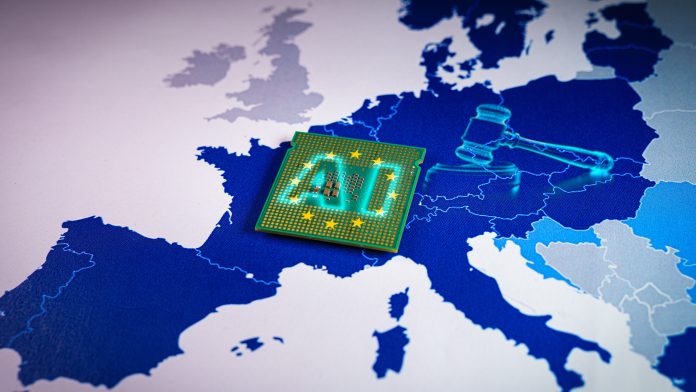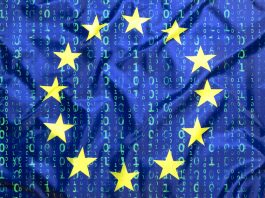The European Commission’s AI Office plays an integral role in implementing the AI Act, promoting ethical AI use, and supporting innovation.
In recent years, the rapid advancement of artificial intelligence (AI) has transformed various sectors, prompting regulatory bodies to establish frameworks for its ethical and safe deployment.
At the forefront of this initiative is the European AI Office, tasked with implementing the AI Act across the European Union. This office serves as a hub of expertise, guiding the governance of AI technologies and ensuring compliance with established regulations.
By fostering innovation and facilitating the responsible use of AI, the AI Office plays a pivotal role in shaping Europe’s digital landscape, promoting a future where AI contributes positively to society while mitigating potential risks.
To learn more, The Innovation Platform spoke with the AI Office to discuss its initiatives and the significant impact it aims to make in advancing AI innovation across various industries.
Can you detail how the AI Office will contribute to the implementation of the AI Act? What are the main units within the AI Office and their respective functions?
The European AI Office is the centre of AI expertise across the EU. It plays a key role in implementing the AI Act by supporting the governance bodies in Member States in their tasks. It also enforces the rules for general-purpose AI models. This is underpinned by the powers given to the Commission by the AI Act, including the ability to conduct evaluations of general-purpose AI models, request information and measures from model providers, and apply sanctions.
Furthermore, the AI Office makes use of its expertise to support the implementation of the AI Act by contributing to the coherent application of the AI Act across the Member States, including the set-up of advisory bodies at the EU level, facilitating support and information exchange.
In addition, the AI Office develops tools, methodologies, and benchmarks for evaluating the capabilities and reach of general-purpose AI models and classifying models with systemic risks. The AI Office also leads in drawing up state-of-the-art codes of practice to detail out rules in cooperation with leading AI developers, the scientific community, and other experts. Once the AI Act applies, the AI Office will be investigating possible infringements of rules, including evaluations to assess model capabilities, and requesting providers to take corrective action.
Finally, the AI Office is preparing guidance and guidelines, implementing and delegated acts, and other tools to support effective implementation of the AI Act and monitor compliance with the regulation.
The organisational set-up of the European AI Office consists of five units and two advisors, reflecting its mandate. These include: the ‘Excellence in AI and Robotics’ unit; the ‘Regulation and Compliance’ unit; the ‘AI Safety’ unit; the ‘AI Innovation and Policy Coordination’ unit; the ‘AI for Societal Good’ unit; Lead Scientific Advisor, and Advisor for International Affairs.
What role does the AI Office play in fostering innovation and research in AI? Can you elaborate on your work with the GenAI4EU Initiative?
The AI Office promotes an innovative ecosystem of trustworthy AI, to reap the societal and economic benefits.
In January 2024, the Commission has launched an AI innovation package to support startups and SMEs in developing trustworthy AI that complies with EU values and rules. Both the ‘GenAI4EU’ initiative and the AI office were part of this package. The ‘GenAI4EU’ initiative will contribute to the development of novel use cases and emerging applications in Europe’s 14 industrial ecosystems, as well as the public sector. Application areas include robotics, health, biotech, manufacturing, mobility, climate, and virtual worlds.
In 2025, we will ensure access to new, tailored supercomputing capacity for AI start-ups and industries through an AI Factories initiative.

More generally, the Commission supports AI innovation financially through Horizon Europe and the Digital Europe programme dedicated to generative AI. This support will generate an additional overall public and private investment of around €4bn until 2027. We also have in place accompanying initiatives to strengthen the EU’s generative AI talent pool through education, training, skilling, and reskilling activities. Further encouragement of public and private investments in AI start-ups and scale-ups is done through venture capital or equity support, including via new initiatives of the EIC accelerator Programme and InvestEU.
Moreover, the Commission is accelerating the development and deployment of Common European Data Spaces, made available to the AI community, for whom data is a key resource to train and improve their models.
Finally, we have set up the Large AI Grand Challenge, whose winners announced in June 2024 are four innovative AI start-ups from Europe and who shared the prize of €1m and eight million computational hours.
Can you provide some examples of where you think the work of the AI Office will make the biggest difference over the coming years? Are there any initiatives already underway?
Making the EU a leader in AI innovation is a priority for the Commission for the next mandate, as announced by President Ursula von der Leyen in her political guidelines. President von der Leyen has also announced an upcoming Apply AI Strategy to boost new industrial uses of AI and to improve the delivery of a variety of public services, such as healthcare. We will also prioritise the establishment of a European AI Research Council, allowing us to pool all our AI research resources.
How does the AI Office ensure the development and use of trustworthy AI across the EU? How will the AI Office engage with the public on AI and its development?
The Commission aims to foster trustworthy AI across the internal market. The AI Office, in collaboration with relevant public and private actors and the startup community, contributes to this by advancing actions and policies to reap the societal and economic benefits of AI across the EU, providing advice on best practices and enabling ready access to AI sandboxes, real-world testing and other European support structures for AI uptake.
The Office is also encouraging innovative ecosystems of trustworthy AI to enhance the EU’s competitiveness and economic growth, aiding the Commission in leveraging the use of transformative AI tools and reinforcing AI literacy.
Collaboration, both internationally and across disciplines, is crucial to the AI Office’s work. Can you provide some examples of how these partnerships support the AI Office’s objectives and the wider AI industry?
At international level, the AI Office contributes to a strategic, coherent, and effective EU approach, by promoting the EU’s approach to trustworthy AI, including collaboration with similar institutions worldwide, fostering international cooperation and governance on AI and supporting the development and implementation of international agreements on AI.
To effectively carry out all tasks based on evidence and foresight, the AI Office continuously monitors the AI ecosystem, technological and market developments, the emergence of systemic risks, and any other relevant trends. Collaboration with a diverse range of institutions, experts, and stakeholders is essential for the AI Office.
At an institutional level, the AI Office works closely with the European Artificial Intelligence Board, formed by Member State representatives and the European Centre for Algorithmic Transparency (ECAT) of the Commission. The Scientific Panel of independent experts ensures a strong link with the scientific community. Further technical expertise is gathered in an Advisory Forum, representing a balanced selection of stakeholders, including industry, startups and SMEs, academia, think tanks, and civil society. The AI Office may also partner up with individual experts and organisations.
It will also create fora for cooperation of providers of AI models and systems, including general-purpose AI, and similarly for the open-source community, to share best practices and contribute to the development of codes of conduct and codes of practice.
The AI Office also oversees the AI Pact, which allows businesses to engage with the Commission and other stakeholders, such as sharing best practices and joining activities. This engagement has started before the AI Act entered into force and will allow businesses to plan ahead and prepare for the full implementation of the AI Act.
Please note, this article will also appear in the 20th edition of our quarterly publication.









